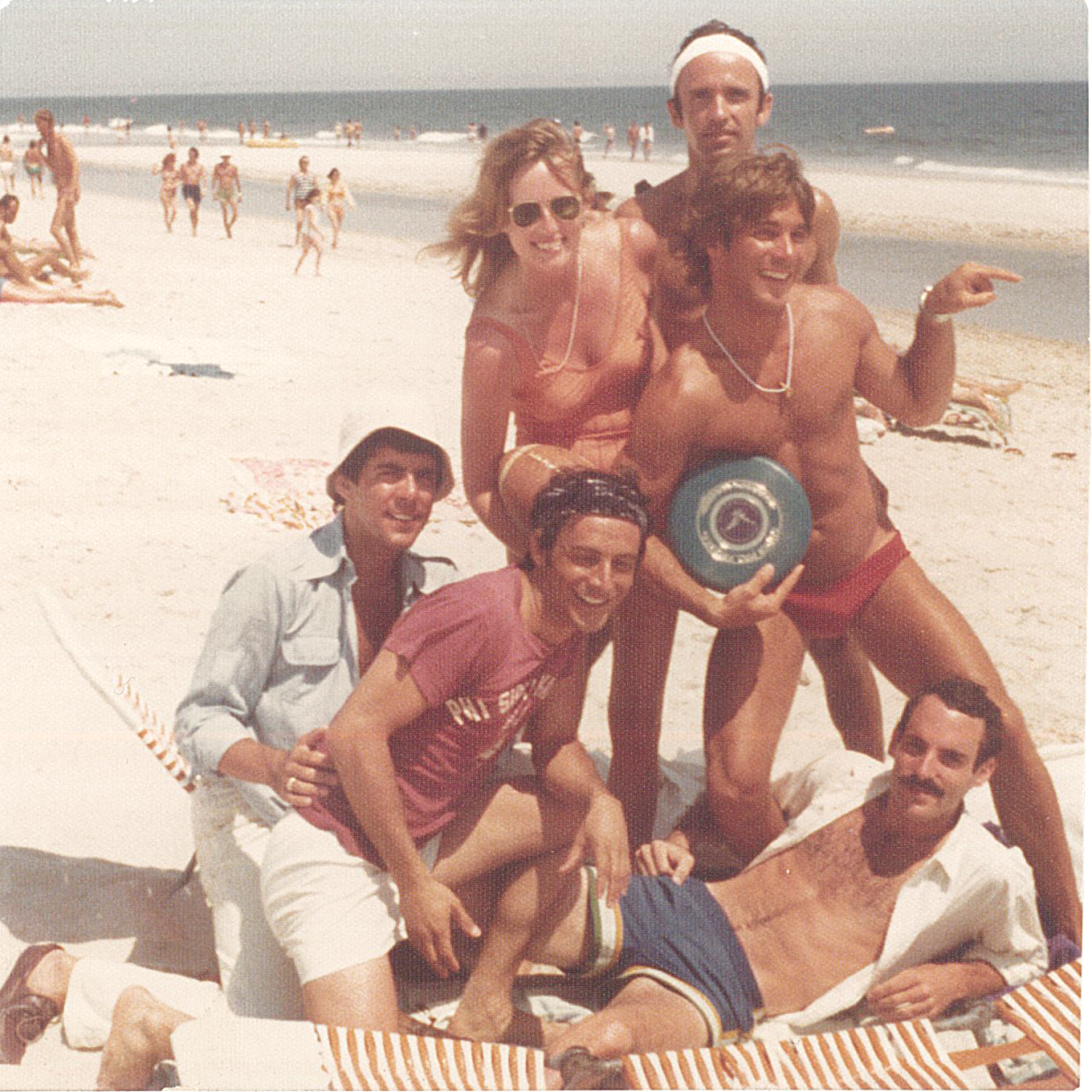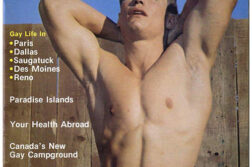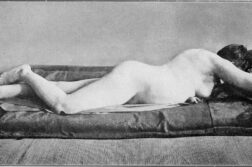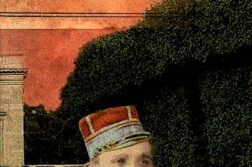Every visitor to the Fire Island Pines should leave with a sense that they entered a world different from “mainstream” America for myriad reasons, not the least of which was that we were a predominantly gay community. Helen Irwin was one of a rare breed of Pines residents: a straight woman. As Helen states in her article, she was often asked what she was doing in a place like the Pines. Her secret? She fit into the community by having essentially the same interests we all did, namely art, culture, great company, sex, dancing and flat-out fun. I’ve often said, the straight world would be better off if it adopted our essential values. Helen was a pioneering straight person who did just that.
— Tom Bianchi
Dateline: Summer 1975. Fire Island Pines.
THIS BEING the epicenter of gay male sociability in the New York metro, you can imagine the question I was asked most often: “What’s a nice straight girl like you doing in a place like this?”
My response, although not in so many words was, “Who wouldn’t want to be in a place like this?” I was surrounded by the most beautiful men in the world with bodies to match, all smart, talented, working in the theater, the arts, fashion, and the law. The men would leave their jobs in New York City on Friday afternoon, take the ferry (yes, the ferry) to Fire Island, spend the weekend, and go back to New York on Sunday evening (or Monday morning) with no one being the wiser. It was the ’70s, and most gay men were still leading double lives.
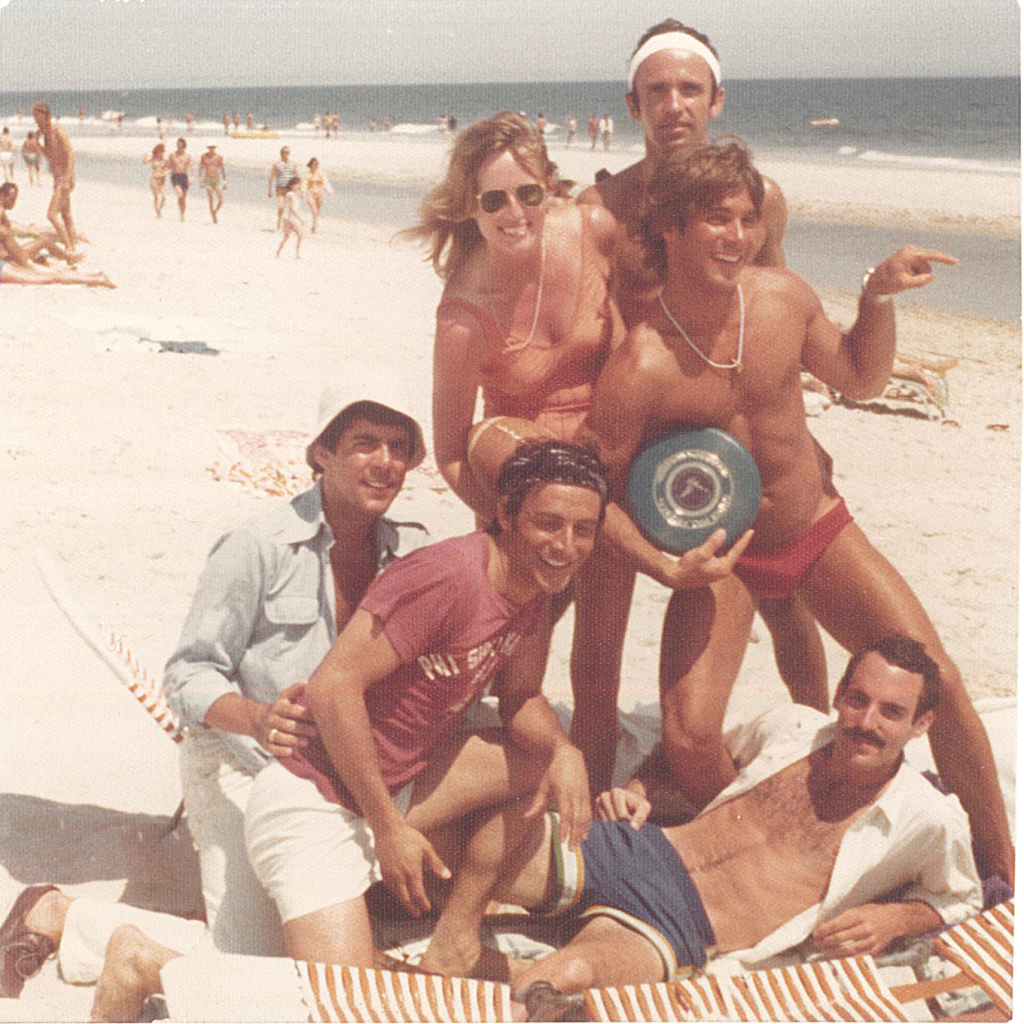
For me, it was perfect. I was the managing editor of Viva magazine, a short-lived women’s magazine published by Bob Guccione of Penthouse fame. By the time I went back to the city after the weekend, I knew exactly what was happening, or would be happening—on Broadway, in the book publishing world, and in the film industry. Back then, Columbia, Universal, Warner Brothers, and Paramount all had offices in New York. I took these ideas back to Viva and had my editors follow up on what we knew would be the next big thing. This was particularly useful with my fashion editor, who was none other than Anna Wintour.
Before venturing to Fire Island, I’d spent the previous summers in the Hamptons but was not happy there. I shared a house with two other smart, attractive, professional women. When we went out at night, the only men we met were neither smart nor attractive—not my kind of guys. This did not prevent them from hitting on me all the time, however, which I did not enjoy. At some point, my best friend at the time, Michael Parish, suggested that I consider trying Fire Island. I’d met Michael when we were both working for World Tennis magazine. He was the art director, and he was a beauty. He had rented a place in the Pines for several summers. But I wasn’t convinced. I said, “Right, I’m sure they’d want me out there.” But he persuaded me to answer an ad in The Village Voice, so I did.
I interviewed at the house and was accepted by the men, but as it turned out, they said I’d have to share a room. I needed to think about it because I wasn’t sure I would be able to find a roommate. So I went for a walk on the beach, where I ran into a man I recognized as having interviewed at the same house just before me. We started talking, and I mentioned that I liked the house, but didn’t know what I was going to do for a roommate. He said, “To be honest, I was married and I’m not sure I want to be here. I’d be way more comfortable with you as my roommate.” And so we sealed the deal. Halfway through the summer he met someone who was a visiting cousin of one of my other housemates. They became what we now call “partners,” so I had two roommates for the rest of the summer. That was fine because, to give them privacy, I went out dancing until four in the morning—it was disco time!
Among my housemates that first summer was a man who designed wedding gowns for a company in the garment district. Someone got the idea that he should make nuns’ habits for all eight of us in the house, and that we should walk out of the woods in a row opposite tea dance during the July Fourth weekend, which we did. What was especially challenging for me was teaching the men in my house to avoid tripping while walking in floor-length gowns. And we stopped tea dance cold! We walked to the end of the pier, turned around, ran back to our house, changed, and went to tea dance. Everyone was talking about the nuns and asked if we had seen them. We said Yes and marveled at how fabulous they were. Many people wondered if they’d be back again after their brief appearance.
Actually, the nuns did go back again. We had an encore during Labor Day weekend, but this time instead of the wimple, the draped headpiece, we wore the cornette, the fly-away hats that European nuns wear. Again tea dance came to a halt.
For my second summer, one of the men I had met before asked me to join his house. It was Tom Bianchi, then an attorney, now a well-known photographer. It was on Fire Island that he first started taking photographs, many of which were published just last year in his book, Fire Island Pines: Polaroids 1975-1983, and two of which appear here.
I’d had a great first summer, but I was so happy to be invited to be part of a smaller, more intimate house. There were four of us instead of eight, and we each had our own bedroom. My housemates were an attorney, a medical doctor, and an executive at Universal Studios. They cooked and I cleaned. We shared expenses, and each of us was entitled to invite whomever we wanted to Saturday night dinner. We had a round dining room table that seated up to ten (if we had to), and the conversation during dinner—whether about politics, the arts, or popular culture—was always smart, clever, and engaging. I felt privileged to be part of the group.
Then we all went dancing. One night Michael Parish and I were at the Blue Whale, just checking out the dance floor, when I thought I noticed an attractive guy cruising me. I mentioned it to Michael, who said, “Helen, you’re on Fire Island. He’s got his eyes on me.” We continued to argue the point until we decided to go across the dance floor and talk with him. Turns out we were both right.
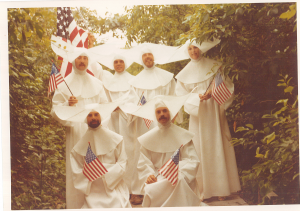
The doctor in our house had been married and was now divorced. He had rights to see his daughter on various weekends. His ex-wife agreed to let the little girl spend several weekends with her dad at his house in the Pines. She and I had a great time. We’d go to the beach together and build sand castles, or try to. For those weekends, our place became a family vacation house.
Of course, the gay guys were in heaven, but it was a good time for me, too. There were a number of men who were not yet sure who they were. So they’d come out to Fire Island to “test the waters,” so to speak. Those who decided it wasn’t for them somehow found me, and that was good for both of us. As Tom Bianchi says about me in his Fire Island book: “She loved gay men and often had whatever young straight man who might stray into the Pines to herself.”
We kept the same house with the same house mates for several years. And of course there were theme parties: a “green and white” party, an “Egyptian” party, a “desert” party, a “sunrise party,” and many more. One especially memorable night, a group of us walked about a mile down the beach to Cherry Grove to see Donna Summer, who was playing a one-night stand in their auditorium. Just Donna and us. She had brought her disco act to the island.
My last summer was 1980. I started law school that fall. Things had already begun to change during the previous summers. Something was happening and everyone knew it—and we knew it wasn’t good. Men were starting to get sick, but no one knew why. It was a terrible time, and I was there at the beginning.
Up until then, however, these were the best days (and nights) of my life, those gorgeous summers I spent on Fire Island in the mid- to late ’70s. It was glorious, filled with beautiful days and stimulating nights, total freedom, and a time which will never come again. Those of us who experienced those extraordinary summers know just how lucky we were. And we have never forgotten.
Helen Irwin is a legal editor. She lives in Brentwood, California.


